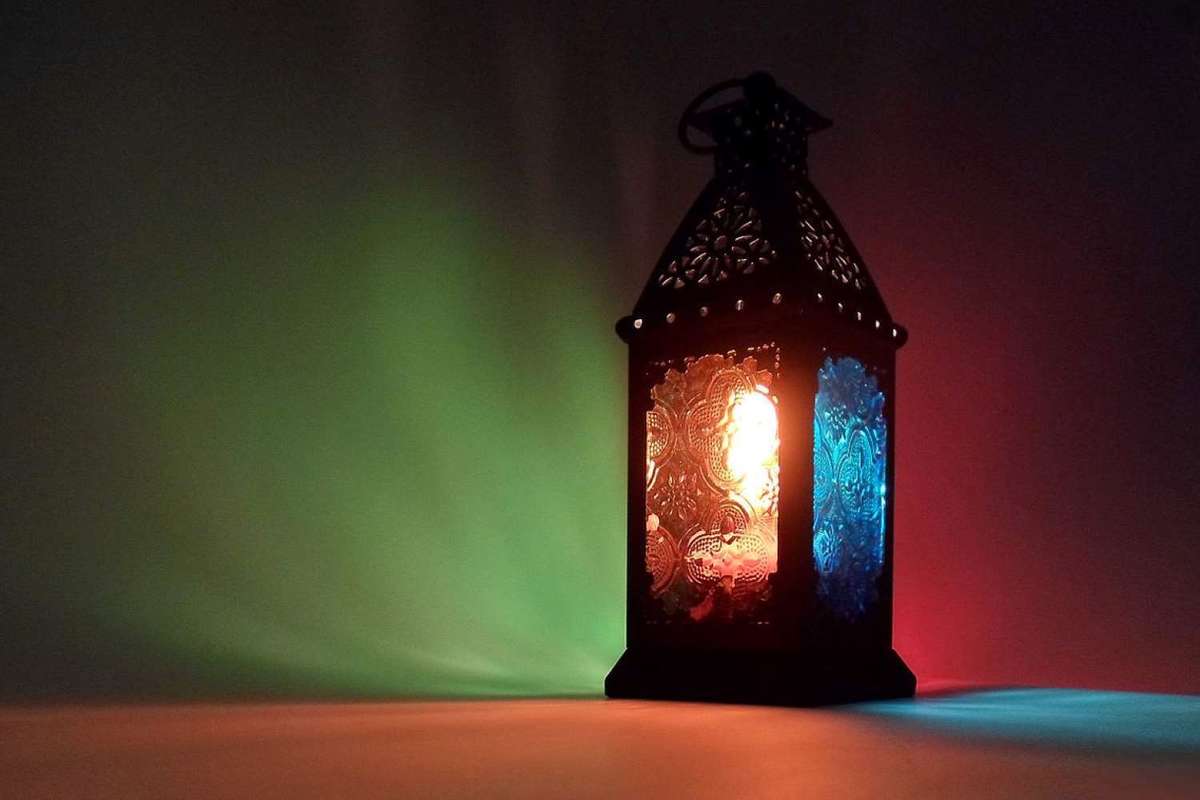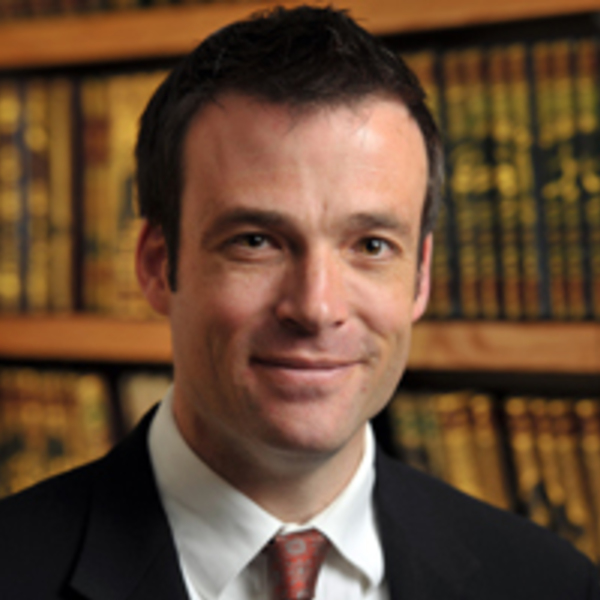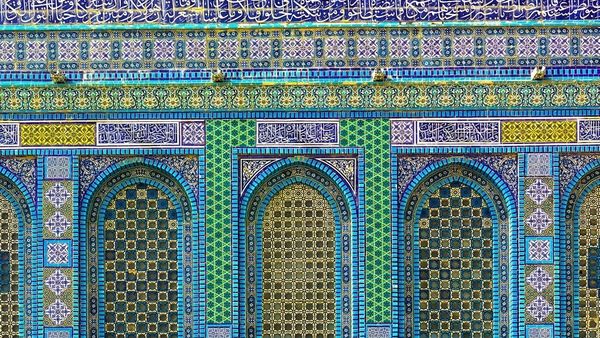Ramadan is the ninth month of the Islamic calendar and the only month mentioned by name in the Qur’an: “Ramadan is the month in which the Recitation (Arabic: qur’an) was sent down as guidance for humanity” (Q 2:185) The verse continues: “Whoever among you witnesses the month shall fast in it.”
When Muhammad traveled in AD 622 from his native city of Mecca to a city about 250 miles to the north named Yathrib (later to be named Medina), he initially instructed his followers to fast along with the Jewish community there on Yom Kippur. This, in the Arabian calendar, fell on the tenth day of the month of Muharram (known as Ashura). But Jews and Muslims did not fast together for long in Medina. When Qur’an 2:185 was revealed to Muhammad, early in the Medinan period, Muslims began to fast for the month of Ramadan and have done so ever since. Qur’an 2:185 brings together two elements of the month of Ramadan. The “sending down” of the “Recitation” (or the Qur’an) and the obligation to fast. It is possible that the connection between the two in this verse is related to the Jewish tradition that the tablets of the Law were given to Moses on Yom Kippur, the Jewish day of fasting.
The fast of Ramadan requires Muslims (of able body and mind) to abstain from food, drink, smoking, and sex during daylight hours. Women who are in a state of ritual impurity from menstruation or childbirth do not fast. The Ramadan fast is one of the five pillars of Islam. Accordingly believing Muslims should not decide each year whether or not they are going to fast. To be a Muslim, at least from this traditional legal perspective, is to always fast during Ramadan. The traditional Islamic legal schools take this quite seriously: to deny the obligation to fast is to be an unbeliever (kafir). But then most legal schools allow for some accommodations: if one breaks a fast unwittingly during Ramadan they are not to be punished but simply compensate for that day by fasting a day after the month is over, or by giving alms to the poor. Those whose health or life are at risk should (or according to some schools of thought, must) break their fast.
These rules surrounding Ramadan are part of a larger Islamic web of ideas regarding God’s imposition of the shariʿa, or law, on humankind. By attentiveness to the precepts of the law, which involves fasting, prayer, almsgiving, and elements of daily life, from what clothing is appropriate to what to say after you sneeze, Muslims manifest their trust in God in this life and work towards their salvation in the next life. In fact, there are also elements of social pressure and fraternal correction that encourage (or in some cases, compel) observance of the law. Thus a decision not to fast during Ramadan can be a complicated one for a Muslim. In some Islamic countries Muslims (or even non-Muslims) can be punished for not fasting, at least if one eats or drinks in public. To do so is (according to the logic of such laws) to cause offense to Islam and Muslims.
For many Muslims, moreover, fasting during Ramadan is not simply about a legal obligation but also an occasion for spiritual growth. Many Muslim spiritual leaders encourage Muslims to fast also from gossiping or swearing during the Ramadan fast. The great Muslim theologian, philosopher, and mystic al-Ghazali (d. 1111) notes that God especially values fasting since it is an act that is only visible to him. Through fasting, al-Ghazali adds, the believer vexes Satan who uses eating and drinking to stimulate human vices.
Most Muslims fast Ramadan because God has required it, but God (who wills the best for humans) only requires that which is good. Accordingly, the popular Islamic fatwa site IslamQA, in response to the question “Why do Muslims fast?” begins by noting that Muslims fast because God has commanded Muslims to do so (and quoting Qur’an passages to this effect). It continues, however, with ethics: fasting leads to piety and submission to God. Islam teaches that Muslims when fasting “should not backbite about people, tell lies, or spread malicious gossip among them, or engage in haram [forbidden] transactions, and he should avoid all haram things. If a person does that for a whole month, the rest of the year will go well.”
The meaning of Ramadan, moreover, is not limited to the spiritual and ethical benefits of fasting. Chapter 97 of the Qur’an, known as Surat al-Qadr, speaks of a “Night of Destiny [qadr]”:
Indeed we sent it down on the Night of Destiny
But what would make you know the Night of Destiny?
The night of destiny is better than a thousand months.
The angels descend in it, with the Spirit, by the permission of their Lord, with every command
It is peace until the break of dawn.
What exactly was “sent down” on the Night of Destiny? The answer, according to most Muslim commentators, is the Qur’an, which God sent down from the highest heaven to the lowest heaven on this night. In some Islamic traditions that allow for the representations of angels, images of Gabriel (sometimes identified with the “Spirit” in Qur’an 97) show him bringing the Qur’an to the prophet Muhammad on this occasion. Moreover, in light of Q 2:185 (quoted at the opening of the article), which speaks of the “Recitation” [qur’an] being sent down in Ramadan, it is widely agreed that the descent of the Qur’an took place in the month of Ramadan. Various traditions disagree over exactly which night of Ramadan is the “Night of Destiny,” although most agree it is an odd number night near the end of the month.
In a way (and although one might not want to take this analogy too far), the “Night of Destiny” to Muslims has some of the significance of Christmas night to Christians. The Word of God (for Muslims), the Qur’an, comes down from heaven on “the Night of Destiny” as the Word of God (for Christians), Christ himself, enters the world on Christmas night.
Ramadan is an occasion of great solemnity, for repentance, and for the mortification of the flesh, However, it is also an occasion, during the night, for celebration. There is no prohibition against sleeping during the day in Ramadan, and there is no prohibition against staying up during the night and enjoying the things that are prohibited during the day. In many Islamic countries, the streets are quiet (especially in the morning hours) during the days of Ramadan. In 2018 I visited the city of Hebron in Palestine with a group from Notre Dame in the morning hours of Ramadan. The old market, which I had seen bustling with trade during a visit a few years year, was deserted.
At night, however, towns and cities come to life. Men (and women) might go to the mosque after the night prayer to carry out special additional prayers together known as taraweeh. Families will come together to have a large evening meal, or iftar. In many Islamic countries television channels will broadcast special series during the nights of Ramadan (my Christian in-laws in Lebanon wait all year for their release in Ramadan). In the early morning, before the dawn (or fajr) prayer, families will eat together a meal known as suhur. The month of Ramadan brings together families and communities in solidarity and celebration.
At the end of Ramadan, to fall this year in the United States on May 12 or 13 (depending on when the new moon is cited marking the beginning of the next Islamic lunar month, known as Shawwal), Muslims celebrate the great breaking of the fast, or Eid al-Fitr. Although it is considered by tradition the “lesser” of the two great Islamic feasts (the other being the feast of the sacrifice, Eid al-Adha) it is celebrated joyously, with family visits, meals with special treats (perhaps biryani and meat curries in South Asian houses, or lokum, “Turkish delight,” for dessert in Turkey) and greetings of congratulations for completing the fast.
In my teaching at the University of Notre Dame I often speak to students about cultivating a disposition of admiration of Islam and Muslims. We can especially admire the solidarity that Muslims experience during Ramadan. We can also consider with sincere appreciation the dedication of Muslims who keep the Ramadan fast. Indeed, we can admire more than their achievement of avoiding food and drink. We can admire also the pious disposition that motivates Muslims to fast. While some apologetically-oriented Islamic websites might tout the physical and psychological benefits of fasting, ultimately the Ramadan fast is followed so widely simply because it is a religious obligation. Catholics can learn from this attentiveness to religious obligations, this desire to live in submission (the meaning of the Arabic word islam) to God. Perhaps learning more about Islam might help Catholics cultivate a greater attention to the demands of our own faith. This is a lesson that can be learned from Muslim friends during the month of Ramadan, and all year long.


